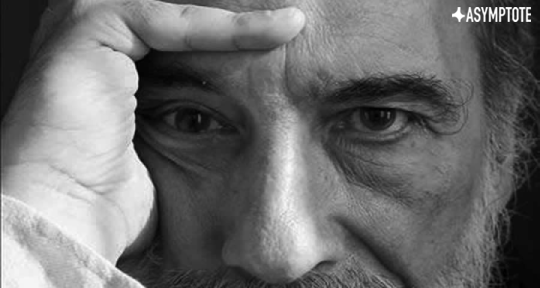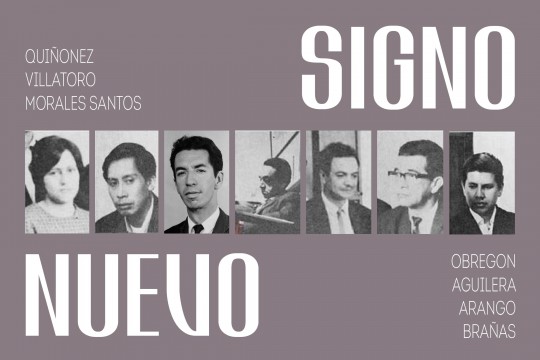Last month, Chilean poet Raúl Zurita won the prestigious Reina Sofia Prize for Ibero-American Poetry. He is esteemed as one of the most talented Chilean poets of the twentieth century, alongside Pablo Neruda and Vicente Huidobro. María de los Llanos Castellanos, the President of National Heritage, said that Zurita had been awarded the prize in recognition of “his work, his poetic example of overcoming pain, with verses, with words committed to life, freedom, and nature.” Having lived through Augusto Pinochet’s dictatorship (1973–1990) and, like many other Chileans, having been arrested and tortured under Pinochet’s regime, Zurita’s work addresses the violence committed against the Chilean people. His books in English translation include Anteparadise (translated by Jack Schmitt), Purgatory (translated by Anna Deeny), INRI (translated by William Rowe), and Song for His Disappeared Love (translated by Daniel Borzutsky).
For a year now, since October 2019, Chile has been gripped in fresh political protests, sparked by a rise in subway fares. These have been the biggest protests in Chile since the end of the dictatorship and violent clashes between protestors and police have resulted in deaths, injuries, and arrests. In this essay, Asymptote’s Editor-at-Large for Iran, Poupeh Missaghi, reflects upon Zurita’s response to state violence in his work. She draws a comparison with her native Iran, which similarly faced a US-backed coup (1953) and has recently experienced mass protests in response to economic injustice. By exploring Zurita’s ability to express the history and suffering of his country, as well as her own relationship to his body of work, Missaghi considers the importance of finding one’s literary heritage.
The first time I saw Raúl Zurita read was in 2016 at the University of Denver. My skin felt raw, not just in the presence of his words (some of which I had read before), but also in proximity to his voice—deep and powerful yet carrying its fragility on its every note, accompanied by the trembling in his hands and torso. Trembling that wasn’t hidden or performed, but simply part of the way he carried, had to carry, his body and his voice as they carried with and in them the bodies, voices, and memories of others.
In a foreword to Purgatory, C. D. Wright says, “Instead of speaking for others, Zurita channels their voices.” There is an important difference here: the poet is not sitting on the sidelines and observing, but rather entering the purgatory himself. Whether through the intentional acts of hurting himself in his younger days (“branding his face and burning his eyes with ammonia”) or through the unasked-for Parkinson’s disease in his later years, Zurita literally embraces the pains he and his people have lived through. About his disease, Zurita notes,
I feel potent in my pains, in my curved spine, in the increasing difficulty of holding the pages when I read in public . . . I might have a bizarre sense of beauty, but my disease feels beautiful to me. It feels powerful.
Being in his presence over the years, I cannot help reading his Parkinson’s as another layer of his life-long labor of memory—his nerves being affected, being burdened, and his whole body becoming a witness who speaks even when he is not using verbal language.
***
The first work of Zurita I read was Song for His Disappeared Love, which for some reason I always remember as Song for His Disappeared Self, which is perhaps just a ghost of the same title. I read the book in a documentary poetics class taught by Eleni Sikelianos, and that was the beginning of my fascination with Zurita’s work, as well as with that of the translator Daniel Borzutzky. In Song for His Disappeared Love, Zurita narrates the pains of different countries of the Americas. Toward the end of the poem there are two drawings that resemble maps of some imaginary terrain. The niches in the first map are empty, filled with a void. The ones in the second include names of countries. Looking at them, the preceding pages of text begin to seem like another map, of partitioned city blocks or a cemetery with tombstones made of words. The last stanza of the poem before the drawings reads,
30. Is the tomb of the country’s love calling? Did you call out of pain? Out of pure pain? Was it out of pain that your love cried so hard? . . . are they calling me? Are you calling me?
This is one of the recurring themes in Zurita’s work: the psychological traces of political history on both the people and the landscape, and how one responds to being called by the voice of one’s pained country coming from the depths of darkness, long after the sources of that pain and the bodies emitting that voice are gone. This voice carried through in Zurita’s poems and the embodied, circular manner with which he approaches the topic have become, since those first encounters, a signpost on my path to addressing the pains of my own country, Iran, miles away from his. Because, of course, history repeats itself; even if this repetition is not in the details—though it can be—but more so in the psychological effects and fissures it leaves in our souls. READ MORE…











